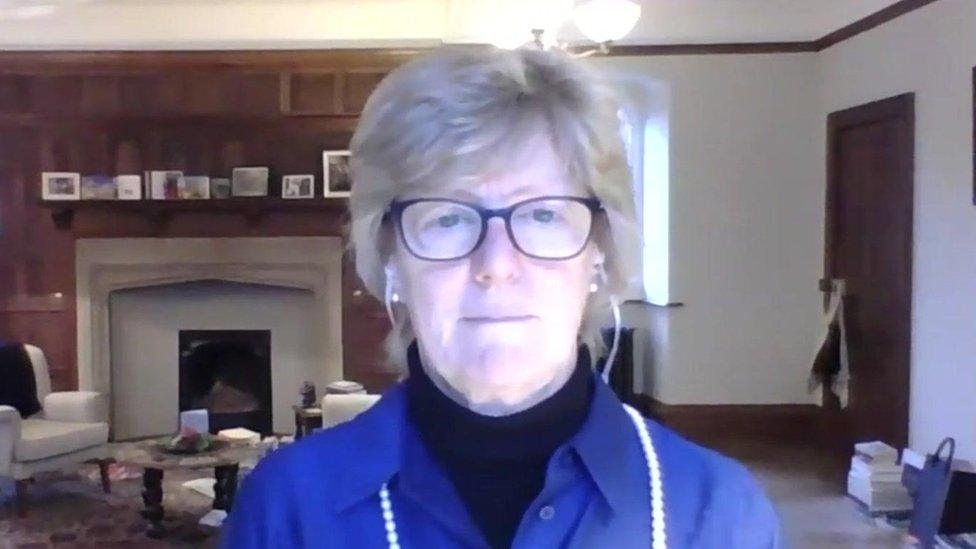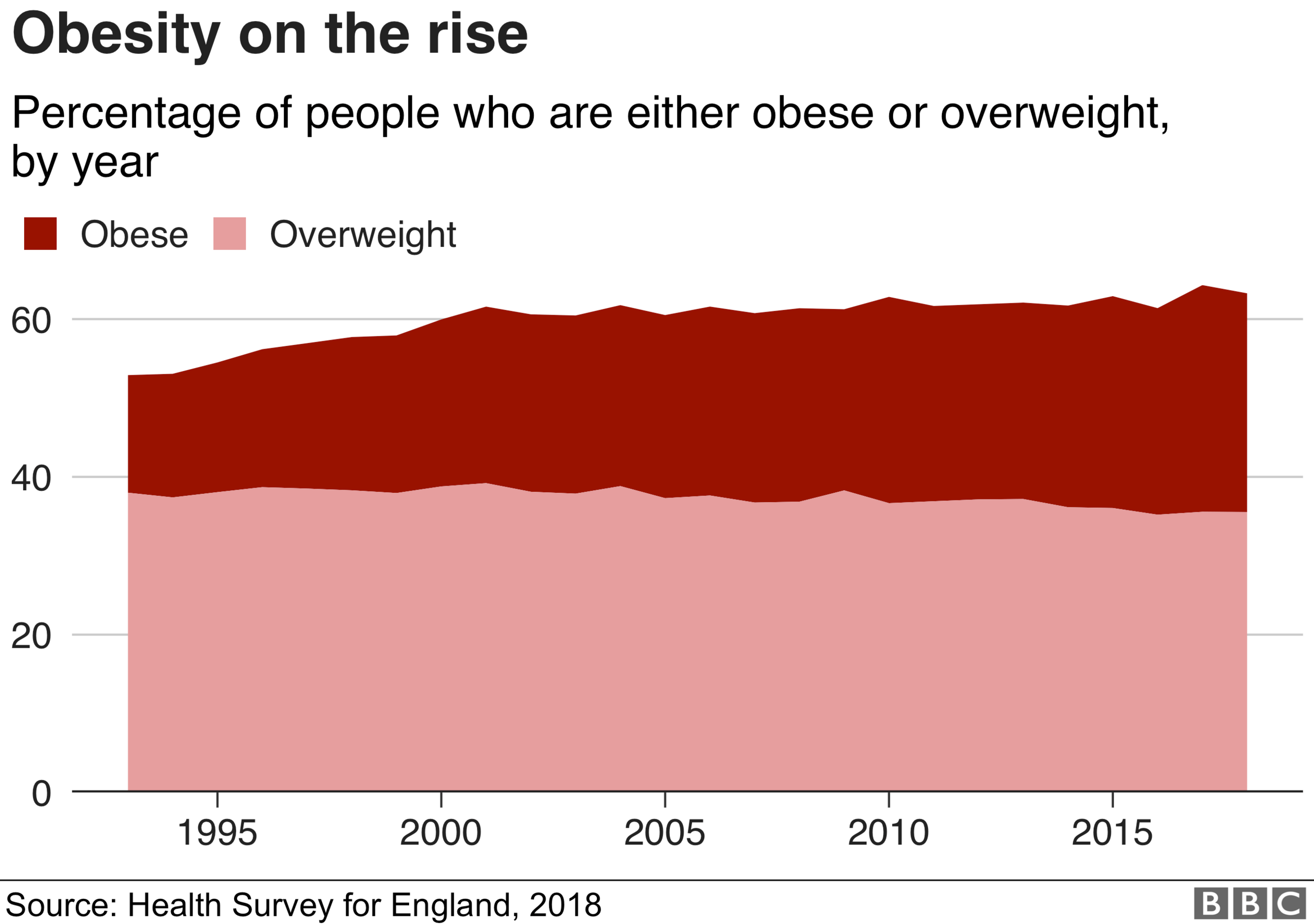Covid: Poor public health made pandemic worse - Sally Davies
- Published

The UK's high level of obesity has fuelled a much-increased death rate from Covid-19, says the former chief medical officer for England.
Prof Dame Sally Davies said high obesity rates - and high levels of deprivation and overcrowded housing - had cost lives.
The poor state of public health meant it was not surprising that the UK had struggled during the pandemic.
Dame Sally called for tougher policies to combat obesity.
She said: "The fact that we are one of the fattest nations in the developed world has undoubtedly led to more deaths than we should have had.
"Our poor public health - whether it is deprivation, overweight, or other chronic illnesses, alongside crowding in urban areas - have led to a much increased death rate over what we could have had if we had a healthier basic population."
The UK became the first country in Europe to pass 50,000 coronavirus deaths earlier this month.
Dame Sally said stricter recent restrictions had reduced social encounters and so brought down coronavirus infections.
But she added that she expected a third wave of the virus, possibly in the New Year, and that it was going to be a difficult winter.
Obesity measures
Dame Sally left her role as the government's chief medical adviser to become head of Cambridge University's Trinity College a few months before Covid-19 struck.

Dame Sally wants tough measures to tackle obesity
She has co-authored a book arguing for more effective measures to promote healthier living. Among the measures she supports are taxes on foods high in salt or sugar.
She said: "It is incontrovertible that if you are overweight - particularly if you are obese - you increase your risk of death.
"All of the diseases associated with overweight, whether it is hypertension, diabetes or others, increase the risk of getting very ill.
"Clearly it is terribly important that we sort out obesity and overweight to improve the health of the nation."
She said that while average life expectancy in the UK had increased, the average number of years of healthy life had not, and among the most deprived sections of the population it had come down.

The UK government unveiled a plan to tackle rates of obesity in July, which included a ban on "buy one get one free" deals on unhealthy food in England, restrictions on where foods high in fat and sugar can be promoted in-store, and new rules for displaying calories on menus.
There will also be a national campaign to help people lose weight and eat more healthily, a consultation on whether to stop fast food adverts online altogether, and a review of traffic light labelling on food and drinks sold in shops.

Analysis: Sobering thought
Dame Sally Davies has made very few comments about the Covid-19 pandemic.
She has been understandably keen not to tread on the toes of her successor Chris Whitty.
She knows that any future review of the government's handling of the coronavirus crisis will partly cover her time as chief medical adviser.
But she has always been passionate about the need to improve health and wellbeing and implement tough anti-obesity policies.
So her broader arguments about the vulnerability of the UK population to Covid because of long-standing structural health inequalities is consistent with her stated views when in Whitehall.
It is a sobering thought that more people died in the UK with coronavirus than in many other leading industrialised nations because of poor underlying health.
Dame Sally has the issue out there for others to consider as they look for lessons to be learned. With her put stature and experience, the message cannot be ignored.
